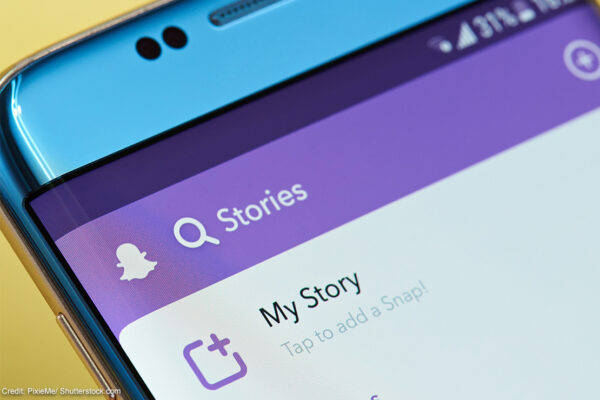B.L. was 14 years old when she posted eight words on Snapchat that got her kicked off her school’s cheerleading team. She never imagined that four years later, her snap would be the subject of a U.S. Supreme Court case.
While hanging out with a friend at a convenience store on a Saturday afternoon, B.L., our client and a high school cheerleader who hadn’t made varsity, posted “Fuck school fuck cheer fuck softball fuck everything” on Snapchat. The words were superimposed over a photo showing B.L. and her friend with their middle fingers raised. The snap disappeared 24 hours later, long before school resumed. Yet, her school responded by kicking B.L. off the cheerleading team for an entire year. Although B.L.’s snap may seem trivial, the stakes could not be higher. Next month, the U.S. Supreme Court will hear arguments in B.L.’s case, and the decision could alter the free speech rights of millions of students and young people across the nation.
The court’s decision in this case, B.L. v. Mahanoy Area School District, will define the scope of young people’s free speech rights whenever they are outside of school — whether they’re marching at a weekend protest or posting on social media — and determine whether schools have the right to punish students for speech and expression in these out-of-school contexts. Today, the ACLU, the ACLU of Pennsylvania, and Schnader Harrison Segal & Lewis LLP filed a brief arguing that outside of school, young people should have every right to express themselves and voice their opinion without worrying if their school will punish them for it.
Fifty years ago, the court ruled that students do not “shed their constitutional rights to freedom of speech or expression at the schoolhouse gate.” However, under current law, school administrators can discipline students for speech inside school that is deemed likely to be “disruptive” or that interferes with the rights of others. That is not the standard that should apply once young people leave the school or a school-sponsored activity. At that point, they should be free to speak without fear that a principal or school administrator will punish them if they find their speech “disruptive.” The question before the court in this case is what happens beyond school — do young people keep their full free speech rights when they are off campus, or are they always subject to having their expression policed according to the lower protection they have as students in school?
Giving school officials power to monitor and punish off-campus speech just because they deem it “disruptive” would put an unprecedented limit on the free speech rights of students and all young people. Students’ off-campus speech can be punished if it threatens violence or engages in harassment or bullying, much like adult speech can be. But extending the in-school standard outside of school could lead to schools preventing young people and students from criticizing school policies, raising important concerns about racist, sexist, xenophobic, homophobic or just plain inappropriate behavior by school staff or other students, talking about religion, making a joke, or using profanity to emphasize frustration. Young people’s speech rights everywhere would be limited to what they can say in school.
In the past, schools have punished students for what they considered “disruptive” expressions inside school, including speech on racial justice and other social issues. For example, authorities have punished Latinx students for wearing shirts that read “We Are Not Criminals” to protest anti-immigrant legislation, religious students for speaking out against abortion or quoting Bible verses, and have punished students for displaying a Black Lives Matter slide as a background during remote school.
These examples of discipline show how often school officials misuse their authority to police student speech. Giving them the power to police young people’s speech will have even worse results: Students won’t be able to discuss their views on racism, national policy, or religion even outside of school. And, as with most government authority, it’s not hard to imagine how that power will be applied in discriminatory ways. In fact, we’ve already seen schools misuse their power in troubling ways to punish young Black people for what they say outside of school, including for posting a photo of a memorial commemorating a girl’s deceased father, a photo of a boy “holding too much money,” rap music videos, and posts calling out racist slurs used by their white classmates.
Protecting students’ and young people’s full free speech rights when they are outside of school is vital. Taking away that safeguard would have a chilling effect on free speech, deterring young people from engaging in political, social, or religious expression out of fear of punishment. If schools could control young people’s speech rights outside of school like they do inside, young people could never express themselves freely. They’d learn that, in our society, saying anything controversial, unpopular, or critical of the established order can lead to punishment. That’s certainly not the lesson that schools, or the Supreme Court, should be teaching.

